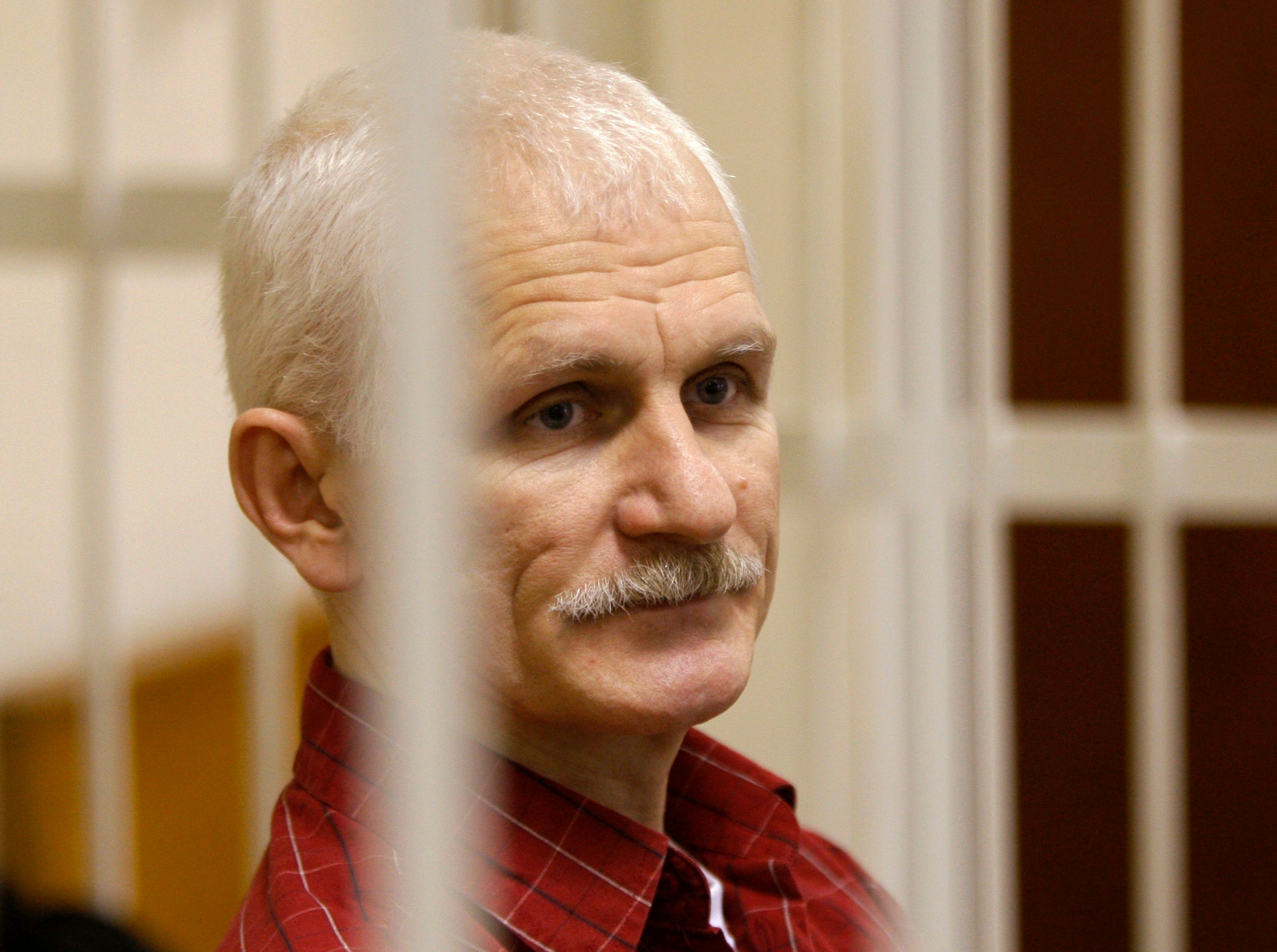Alfred Nobel’s vision of peace is one that is desperately needed today
Editorial: The Nobel Peace Prize results will be widely welcomed throughout the democratic nations – but we are a million miles from the world the award is fighting for

It was not the 70th birthday present Vladimir Putin wanted, and it will be widely welcomed throughout the democratic world. The Nobel Peace Prize committee has awarded the coveted prize to Ales Bialiatski, the veteran civil rights activist, who is currently being held in prison without trial in his native Belarus. Sharing the prize with him are Memorial, Russia’s oldest rights organisation, and the Centre for Civil Liberties, the Ukrainian rights group.
The committee said the laureates “have for many years promoted the right to criticise power and protect the fundamental rights of citizens. They have made an outstanding effort to document war crimes, human rights abuses and the abuse of power. Together they demonstrate the significance of civil society for peace and democracy”.
The awards could hardly be more topical. No one can question the committee’s desire to honour the champions of freedom in Belarus, Russia and Ukraine during the most dangerous period in Europe since the Second World War.
Berit Reiss-Andersen, who chairs the Nobel committee, denied the awards were a birthday snub to Mr Putin. "We always give the prize for something and to something and not against someone," she told reporters. But the shared awards undoubtedly have a common thread – the Russian president.
Mr Bialiatski, the unassuming founder of the Belarus rights group Viasna, was detained last July as part of a major crackdown on the opposition by Alexander Lukashenko, the authoritarian Belarusian president and close ally of Mr Putin. Mr Bialiatski should now be released from jail so he can attend the award ceremony in Oslo on 10 December; for good measure, Belarus should release all its political prisoners at the same time. Sadly, it would be a huge surprise if any of that happened.
Similarly, there is little chance that its award will help Memorial in its struggle to even exist in Mr Putin’s Russia. Since the late 1980s, the organisation has documented repression and killings from the Stalin era to the present day but was shut down by the Supreme Court last December under “foreign agent” legislation, which has muzzled dozens of NGOs and media outlets seen as critical of the government.
As the late former Soviet president Mikhail Gorbachev and Novaya Gazeta editor-in-chief Dmitry Muratov, who won the Nobel peace prize last year, said in a joint statement: “The long-term activity of Memorial has always been aimed at restoring historical justice, preserving the memory of hundreds of thousands of victims during the years of repression, preventing such things now and in the future.” Clearly, too close to home for Mr Putin.
This award will be a boost for Russia’s civil rights movement after many groups were forced into silence. In both Russia and Belarus, many organisers have fled abroad, while those who remained risk being jailed.
The Nobel prize committee did consider whether honouring freedom fighters in Russia and Belarus might provoke a further crackdown or even reprisals against the winners. But Ms Reiss-Andersen said: “We also have the point of view that the individuals behind these organisations, they have chosen to take a risk and pay a high price and show courage to fight for what they believe in.” She expressed concern about Mr Bialiatski, detained under “very hard conditions” in a prison, saying, “we do pray that this prize will not affect him negatively… we hope it might boost his morale”.
To keep up to speed with all the latest opinions and comment, sign up to our free weekly Voices Dispatches newsletter by clicking here
The committee was right not to be cowed. As Sviatlana Tsikhanouskaya, the exiled Belarus opposition leader, said: "Physically, you know, this prize will not influence their situation, but I am sure it [will] influence the moods and intentions of other countries to help those people who are behind the bars.”
Thankfully, after its remarkable resistance since the Russian invasion in February, Ukraine is still free enough to celebrate the award to the Centre for Civil Liberties. It was set up in 2007 and defended Ukrainians detained in Russian-occupied territories before documenting Russian war crimes for which one day, we hope, there will be a reckoning.
The awards are a reminder that Alfred Nobel’s vision of peace and fraternity between nations is one that is desperately needed today. Unfortunately, we are a million miles from it.






Join our commenting forum
Join thought-provoking conversations, follow other Independent readers and see their replies
Comments